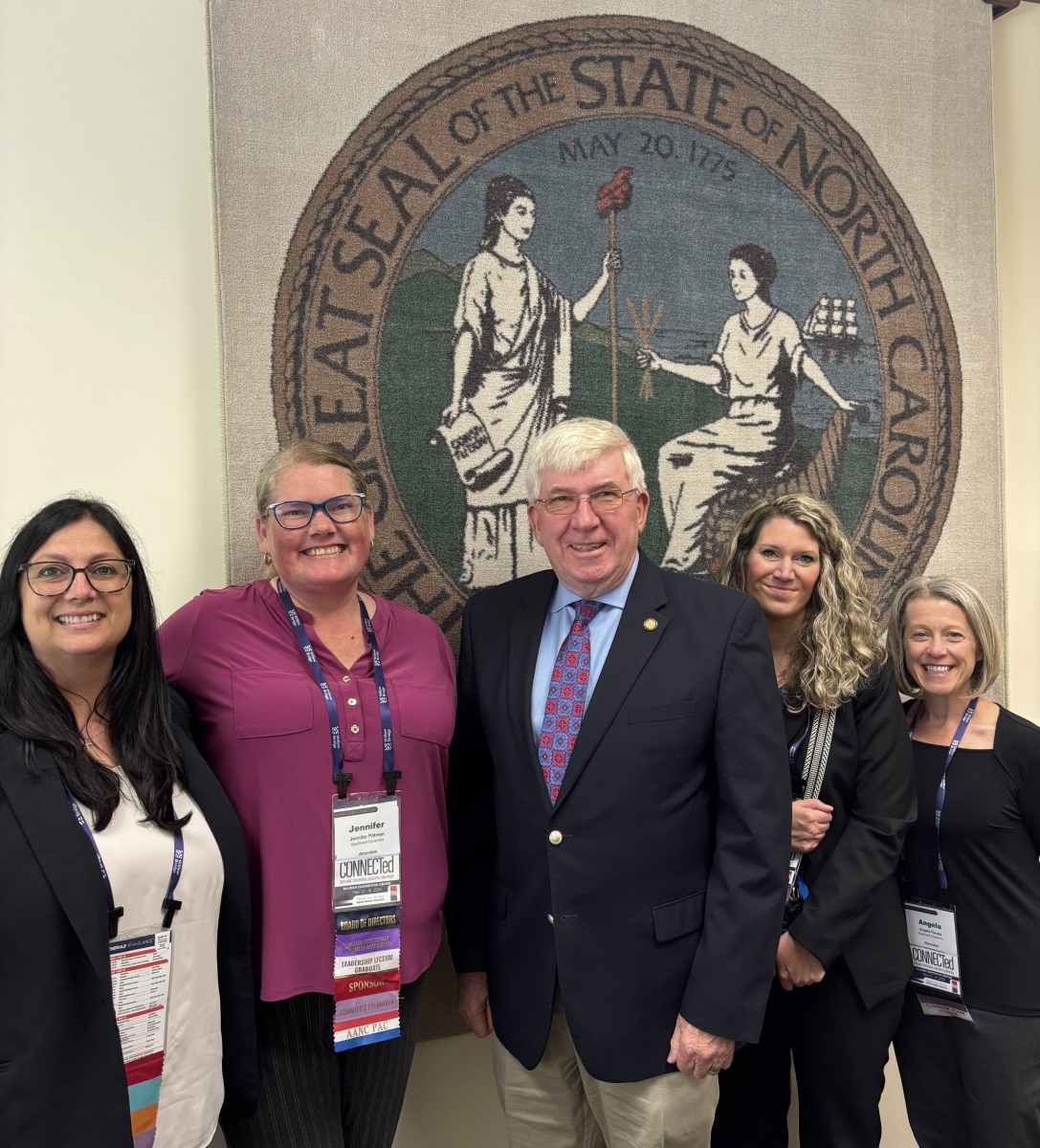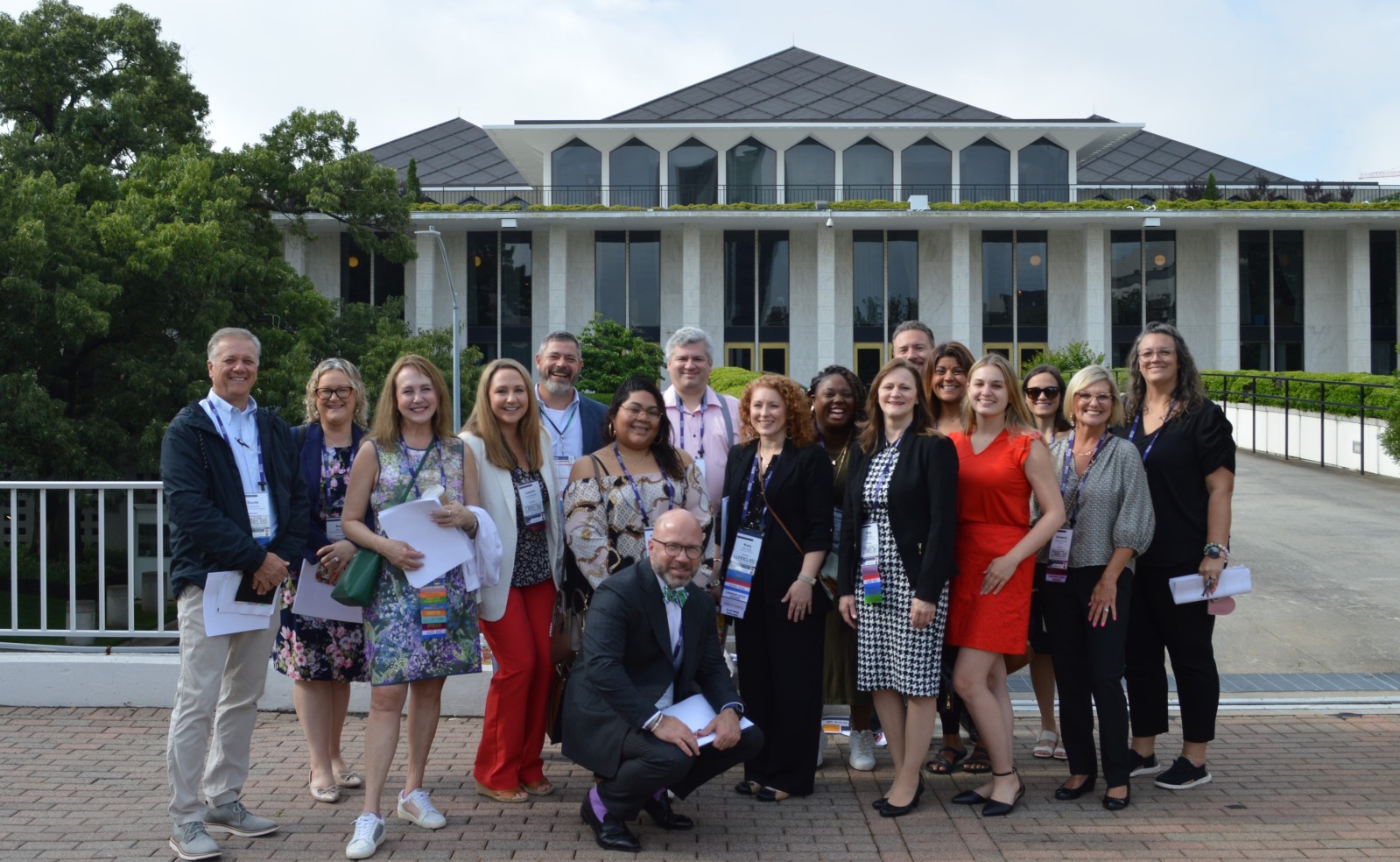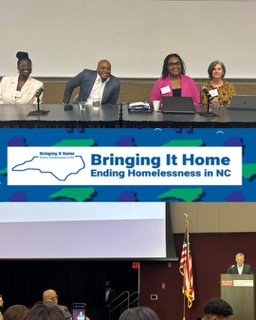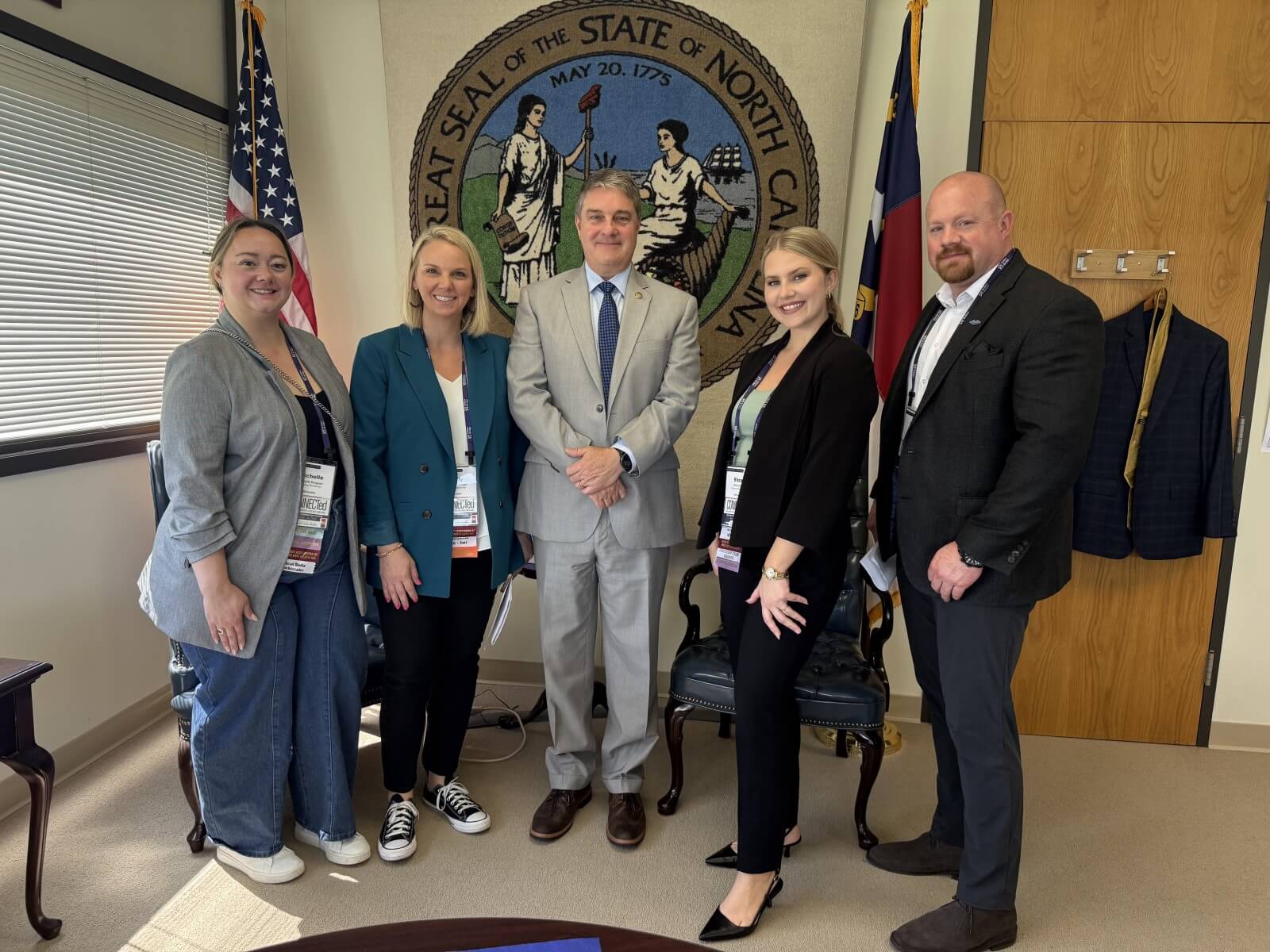AANC Government Affairs Update | May 22, 2025
NC UPDATE

|
|
FAYETTEVILLE UPDATE
Information provided by Greater Fayetteville Apartment Association (GFAA)
During the 2025 AANC Lobby Day, the Greater Fayetteville Apartment Association (GFAA) met with Representatives Garland Pierce and Mike Colvin, and Senators Tom McInnis and Danny Britt; and others; to discuss key housing legislation and the needs of the multifamily industry. GFAA members highlighted the importance of supporting SB 648, which clarifies attorney provisions in eviction cases, and HB 765, which aims to streamline local development regulations and reduce housing costs.
The group also advocated for HB 678, which would ease fire code requirements for certain multifamily buildings—potentially saving developers significant costs and helping keep rents stable. Legislators were briefed on the economic impact of the rental housing industry and shown how every dollar of rent is distributed, with the majority covering essential costs like mortgages, payroll, and property taxes.
One key takeaway that was shared with policymakers was the breakdown of each dollar of rent, illustrating that only seven cents go to owner profit, while the majority covers mortgages, taxes, payroll, and other essential expenses.

As reported from Senator McInnis' office:
"On Wednesday, Natalie Hart, Board of Director for the Greater Fayetteville Apartment Association (GFAA), Jennifer Pittman, Board of Director for the Apartment Association of North Carolina (AANC) and GFAA, Karen Perkins, President of AANC, and Angela Raupp, Board of Director for AANC came to thank Senator McInnis for his continued support of SB 71 and SB 648 and for collaboration and practical solutions for our communities."
PIEDMONT TRIAD UPDATE
Information provided by the Piedmont Triad Apartment Association (PTAA)
Nearly 30 PTAA members participated in AANC's Lobby Day on Wednesday, May 14th. Members met with over a dozen lawmakers or their staff and had many good conversations about housing. H765, Rep Zenger's bill, was a consistent topic of discussion, at most meetings. Many concerns remain about the impact of that bill and others on local governments.
The Guilford County Manager shared his $841.7 million recommended budget this week. We're still reviewing it, but we have several things to highlight today. According to the budget data, 40% of housing units in the county are renter-occupied, which is tracked by other data used by the Greensboro Chamber and other regional organizations.
Beyond that, there was a steady warning throughout the recommended budget that several programs funded by ARPA (American Rescue Plan Act) and other one-time funds were coming to the end of the appropriated funds. Included under that broad umbrella are projects financed primarily with Community Development Block Grants and county support of the Continuum of Care. Community Development Block Grant Funds are used for rehabilitation and new housing construction for individuals with low to moderate income. At the same time, the Continuum of Care focuses on homelessness and housing assistance. The Board of Commissioners will review and vote on this budget at their June 18th meeting. We'll let you know what else we find within the proposed budget.
Register now for Winston-Salem Pig, Poultry, and Politics! While we just returned from AANC's Lobby Day, your next opportunity to meet and mingle with a range of elected officials is coming up quickly. Join the PTAA and TREBIC at the 2025 Pig, Poultry, and Politics annual event in Winston-Salem! This event takes place on Thursday, June 5, at Footnote Coffee & Cocktails in downtown Winston-Salem and features dozens of local lawmakers, staff, and industry colleagues you want to meet. Register here.
TRIANGLE UPDATE
Information provided by the Triangle Apartment Association (TAA)
 TAA members joined other multifamily advocates from across the state to participate in AANC’s Lobby Day. We met with close to 40 legislators to advocate for public policies aimed at addressing North Carolina's housing affordability crisis through proven and practical solutions.
TAA members joined other multifamily advocates from across the state to participate in AANC’s Lobby Day. We met with close to 40 legislators to advocate for public policies aimed at addressing North Carolina's housing affordability crisis through proven and practical solutions.
 TAA was proud to be part of the 2025 Bring It Home: Ending Homelessness in NC Conference. Governor Josh Stein emphasized the urgent need for diverse housing solutions, including single-family homes and apartments. The conference brought together industry experts from across the state to collaborate on strategies for building stronger, more inclusive communities.
TAA was proud to be part of the 2025 Bring It Home: Ending Homelessness in NC Conference. Governor Josh Stein emphasized the urgent need for diverse housing solutions, including single-family homes and apartments. The conference brought together industry experts from across the state to collaborate on strategies for building stronger, more inclusive communities.
TAA Past President Latoya Patterson and HASC Co-Chair Julie Paul contributed to the dialogue by exploring ways to strengthen landlord engagement and build strong community partnerships. TAA is engaged in these critical conversations and committed to being part of the solution.
WESTERN NC UPDATE
Information provided by the Apartment Association of Western North Carolina (AAWNC)
 Photo (left to right): AAWNC Board of Director Michelle Kingson, AAWNC Board of Director Emily Kirchmeyer, Senator Warren Daniel, AAWNC Vice President Eliza King, and AANC Government Affairs Chair Bert Wray
Photo (left to right): AAWNC Board of Director Michelle Kingson, AAWNC Board of Director Emily Kirchmeyer, Senator Warren Daniel, AAWNC Vice President Eliza King, and AANC Government Affairs Chair Bert Wray
During the 2025 AANC Lobby Day on May 14, members of the Apartment Association of Western North Carolina (AAWNC) met with several North Carolina legislators, including Senator Timothy D. Moffitt, Senator Warren Daniel, Representatives Brian Turner and Lindsey Prather, and others. These meetings were part of a statewide effort to advocate for legislative priorities that support housing affordability, streamline development processes, and the multifamily industry. AAWNC representatives shared local industry insights and emphasized their role in the broader AANC network, which represents over 500,000 rental units statewide.At the center of the discussions were these legislative priorities:
- SB 648,which already passed unanimously in the Senate, to clarify attorney provisions in summary ejectment cases—an important tool in discouraging frivolous legal appeals without penalizing good-faith settlements.
- In addition AAWNC promoted support for broader housing development legislation such as HB 768, HB 765, and SB 492. These proposals address high-priority issues such as reducing fire code costs for multifamily buildings, requiring impact analyses for housing regulations, allowing single-stair construction in mid-rise developments, and streamlining zoning and permitting. Legislators were encouraged to consider how these proposals can help expand the state's housing stock and reduce cost burdens for both developers and renters.
Finally, AAWNC took the opportunity to advocate for continued Hurricane Helene Relief efforts, emphasizing the need for long-term recovery funding and legislative support for housing stability programs in the aftermath of natural disasters. These meetings highlighted the multifamily industry’s commitment to being a collaborative, solutions-driven partner in addressing North Carolina’s housing challenges.
